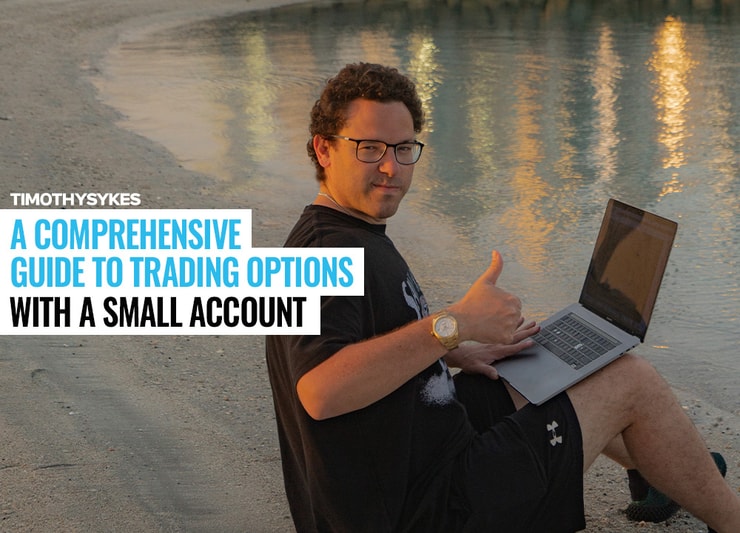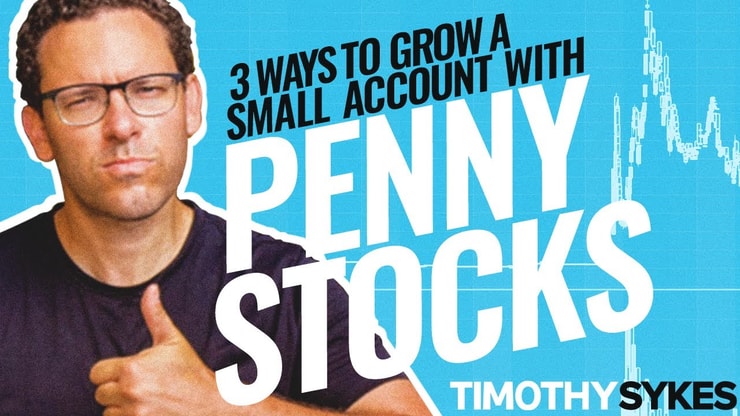Trading options with a small account can be a stepping stone to bigger ventures, a way to dip your toes into the market without committing a large amount of capital. This guide will walk you through the nuances of small account options trading, from understanding the concept and its benefits to developing a robust trading plan.
We’ll cover the essentials — setting up a trading account, learning to analyze the market, and practicing your strategy. We’ll look at the difference between options trading and other online trading strategies, and focus on the questions and opportunities that come with a small account.
Whether you’re new to the process or a stock trading pro looking to try your hand at something different, this guide has got you covered. Let’s dive in!
Table of Contents
Can You Trade Options with a Small Account?

Yes, you can trade options with a small account, and it might be a great way to enter the trading world. Trading options can be a cost-effective way to invest in the stock market, especially if you’re starting with a small account size. Options trading can give you access to several times the number of shares you’d be able to afford if you trade stocks straight up…
However, this ratio and growth potential can also work against you. It’s possible to lose your entire investment — or in some cases, owe significantly more than if you trade shares in the traditional way.
Trading with a small account doesn’t mean you’re limited in your strategies. In fact, there are ways to day trade without a lot of cash a concept that can be explored further in this guide on how to day trade without $25k. This resource can provide you with valuable insights into making the most of your small account.
Understanding the Concept of Small Account Options Trading
Small account options trading refers to trading options with a relatively low amount of capital. This can be an attractive option for beginners or those with limited funds, as it allows you to potentially make larger profits on the same performance of a stock.
However, trading options with a small account also comes with challenges. It requires careful risk management, a solid understanding of the options market, and a well-thought-out trading strategy.
I don’t trade options — I leave it to pros like tech entrepreneur and trader Ben Sturgill. His smart-money webinars are the product of more than 2 decades of experience in the market and a unique technology, and they’re well worth checking out.
Check out the webinar here to see why Ben’s smart-money scanner has been going haywire lately!
What is Considered a Small Account for Trading Options?
There’s no definitive answer to what is considered a small account for trading options, as it can vary depending on the broker and the individual trader’s circumstances. However, generally, an account with a few thousand dollars or less could be considered a small account in the context of options trading.
One of the reasons I give penny stock advice and information to small account traders is with this same leverage in mind. If you buy shares (or short sell shares) with a greater potential for the percentage return on investment, you can grow your account quicker than if you buy stocks at a greater price.
Check out the examples in this video:
Benefits and Drawbacks: Understanding Small Account Options Trading
Trading options with a small account can offer several benefits, including the potential for high returns and the ability to trade a wide range of assets. However, it also comes with risks, including the potential for significant losses and the challenges of managing risk with a limited amount of capital.
How to Trade Options with a Small Account

Trading options with a small account involves several steps, from setting up a trading account to learning how to analyze the market.
Setting Up a Trading Account
The first step to start trading options with a small account is to set up a trading account. This involves choosing a broker, opening an account, and funding it. It’s important to choose a broker that offers a reliable trading platform, competitive fees, and strong customer support.
The platform you choose can significantly impact your trading experience. To help you make an informed decision, here’s a guide on the best trading platforms for day traders. This guide can help you choose a platform that best suits your trading style and needs.
More Breaking News
- Is SoFi Technologies on the Verge of a Breakout After Hitting the 10M Member Milestone?
- BigBear.ai Stocks Tumble: Performance Breakdown and Market Prognosis
- Synaptics’ Connection Craze: Market Awaits SYNA’s Next Move
Learning to Analyze the Market
Learning to analyze the market is a crucial part of options trading. This involves understanding how to read price charts, identify trends, and use technical analysis tools. There are many resources available online, including articles, tutorials, and courses, that can help you learn these skills.
To enhance your market analysis skills, consider exploring the day trading basics. This resource can provide you with a solid foundation for your trading journey.
Developing a Trading Plan
Developing a trading plan is a crucial step in becoming a successful options trader. Your trading plan should outline your goals, risk tolerance, and specific trading strategies. It should also include rules for when to enter and exit trades, how much to invest in each trade, and how to manage your risk.
Practicing Your Strategy
Before you start trading with real money, it’s a good idea to practice your strategy using a demo account. This allows you to gain experience and make mistakes without risking real money.
Once you’re comfortable with your strategy and have seen consistent results in your demo account, you can start trading with real money.
Tips for Trading Options with a Small Account
If you’re trading options with a small account, here are a few tips to help you get started.
Start Small
When you’re first starting out, it’s a good idea to start small. This can help you manage your risk and gain experience without risking too much money.
Use Risk Management Tools
Risk management tools are crucial when trading options with a small account. These can include stop losses and position sizing strategies. These tools can help you limit your losses and protect your trading capital.
Stay Disciplined
Discipline is key when trading options with a small account. It’s important to stick to your trading plan and not let emotions drive your trading decisions. This can help you avoid common trading mistakes like chasing losses or holding onto losing trades for too long.
Keep Learning
The financial markets are constantly changing, and it’s important to keep learning and adapting your strategy. This can involve reading books, taking courses, or following financial news and analysis.
Key Takeaways

Trading options with small accounts can be a great way to enter the trading world. It offers the opportunity for significant positions without investing a lot of cash. However, it also comes with risks, and it requires a good understanding of the options market and effective risk management.
It isn’t a silver bullet for your trading plan — but options trading is one of many techniques you should learn as part of your trading education!
Trading isn’t rocket science. It’s a skill you build and work on like any other. Trading has changed my life, and I think this way of life should be open to more people…
I’ve built my Trading Challenge to pass on the things I had to learn for myself. It’s the kind of community that I wish I had when I was starting out.
We don’t accept everyone. If you’re up for the challenge — I want to hear from you.
Apply to the Trading Challenge here.
And if you’re into options, you’ll want to check out Ben Sturgill’s smart-money webinars — they’ve been killing the market lately!
Trading is a battlefield. The more knowledge you have, the better prepared you’ll be.
Have you tried options trading? Let me know in the comments — I love hearing from my readers!



Leave a reply